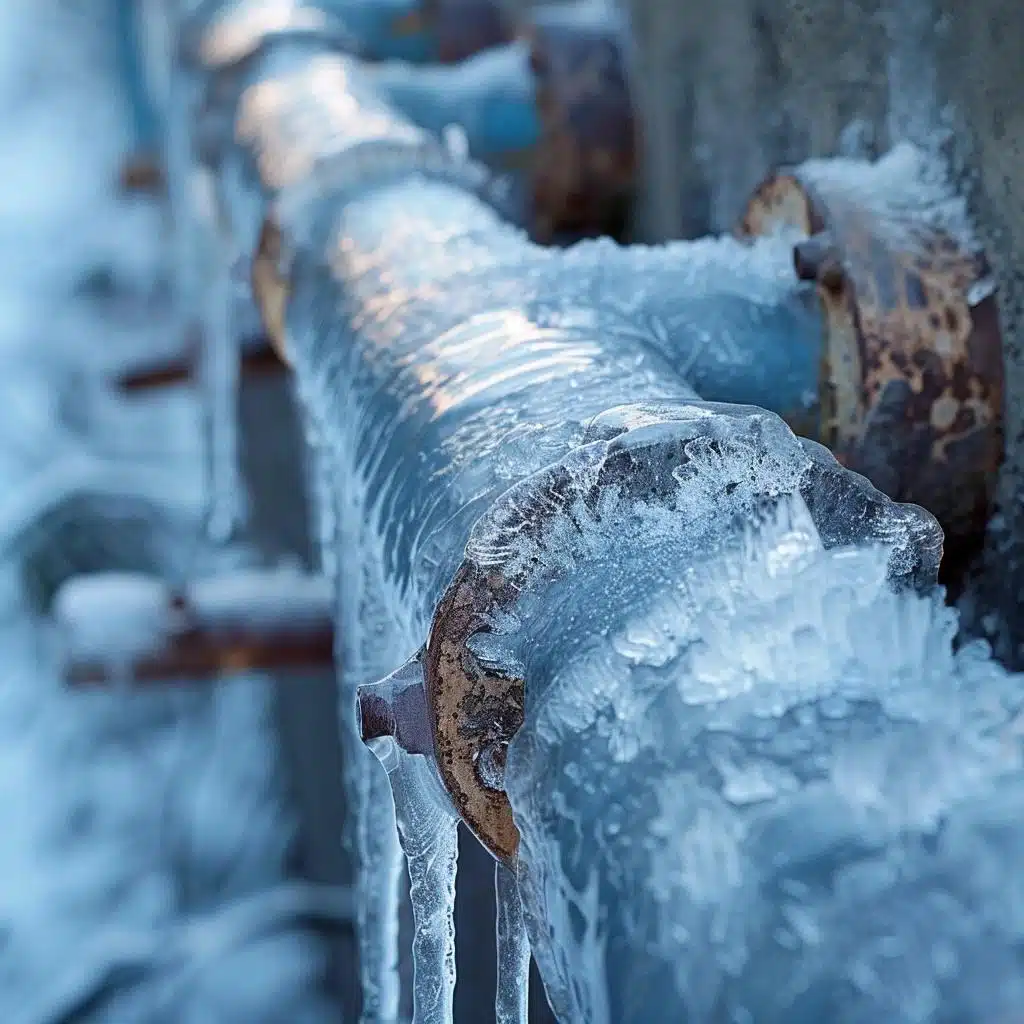Presented here in the next paragraphs you'll find some good quality data regarding Winter Plumbing Precautions: Preventing Frozen Pipes.

Cold weather can ruin your plumbing, especially by freezing pipelines. Here's just how to prevent it from taking place and what to do if it does.
Introduction
As temperature levels decline, the threat of icy pipes boosts, possibly leading to expensive fixings and water damage. Understanding exactly how to stop icy pipelines is critical for homeowners in cold climates.
Prevention Tips
Insulating vulnerable pipelines
Cover pipelines in insulation sleeves or utilize heat tape to protect them from freezing temperature levels. Concentrate on pipes in unheated or outside areas of the home.
Heating strategies
Maintain indoor areas sufficiently heated, particularly areas with plumbing. Open cupboard doors to permit cozy air to distribute around pipes under sinks.
How to identify frozen pipes
Try to find decreased water circulation from faucets, uncommon odors or noises from pipelines, and noticeable frost on subjected pipes.
Long-Term Solutions
Architectural changes
Think about rerouting pipes far from outside walls or unheated locations. Add extra insulation to attic rooms, cellars, and crawl spaces.
Updating insulation
Buy high-grade insulation for pipes, attic rooms, and walls. Correct insulation aids maintain regular temperature levels and reduces the danger of icy pipelines.
Shielding Exterior Plumbing
Garden hoses and outside faucets
Separate and drain pipes yard pipes prior to winter months. Mount frost-proof faucets or cover exterior taps with insulated caps.
Recognizing Frozen Pipelines
What creates pipelines to ice up?
Pipes ice up when subjected to temperatures below 32 ° F (0 ° C) for prolonged durations. As water inside the pipes freezes, it expands, putting pressure on the pipeline walls and possibly causing them to break.
Threats and damages
Icy pipes can cause water disturbances, building damage, and costly repairs. Ruptured pipes can flood homes and create substantial structural damages.
Indicators of Frozen Pipeline
Recognizing icy pipes early can avoid them from breaking.
What to Do If Your Pipelines Freeze
Immediate actions to take
If you presume icy pipelines, maintain taps available to relieve stress as the ice thaws. Make use of a hairdryer or towels taken in hot water to thaw pipes gradually.
Verdict
Preventing icy pipelines calls for aggressive procedures and fast actions. By understanding the causes, signs, and preventive measures, house owners can secure their plumbing throughout winter.
Helpful Tips to Prevent Frozen Pipes this Winter
UNDERSTANDING THE BASICS: WHY PIPES FREEZE AND WHY IT’S A PROBLEM
Water freezing inside pipes is common during the winter months, but understanding why pipes freeze, and the potential problems it can cause is crucial in preventing such incidents. This section will delve into the basics of why pipes freeze and the associated problems that may arise.
THE SCIENCE BEHIND FROZEN PIPES
When water reaches freezing temperatures, it undergoes a physical transformation and solidifies into ice. This expansion of water as it freezes is the primary reason pipes can burst. As the water inside the pipe freezes, it expands, creating immense pressure on the walls. If the pressure becomes too great, the pipe can crack or rupture, leading to leaks and water damage.
FACTORS THAT CONTRIBUTE TO PIPE FREEZING
- Low Temperatures: Extremely cold weather, especially below freezing, increases the risk of pipes freezing.
- Uninsulated or Poorly Insulated Pipes: Pipes located in unheated areas, such as basements, crawl spaces, or attics, are more prone to freezing. Insufficient insulation or lack of insulation altogether exacerbates the problem.
- Exterior Wall Exposure: Pipes running along exterior walls are susceptible to freezing as they encounter colder temperatures outside.
- Lack of Heating or Temperature Regulation: Inadequate heating or inconsistent temperature control in your home can contribute to frozen pipes.
PROBLEMS CAUSED BY FROZEN PIPES
WHY CERTAIN PIPES ARE MORE PRONE TO FREEZING
- Pipe Bursting: As mentioned earlier, the expansion of water as it freezes can cause pipes to burst, resulting in significant water damage.
- Water Damage: When pipes burst, it can lead to flooding and water damage to your property, including walls, ceilings, flooring, and personal belongings.
- Structural Damage: Prolonged exposure to water from burst pipes can compromise the structural integrity of your home, leading to costly repairs.
- Mold and Mildew Growth: Excess moisture from water damage can create a favorable environment for mold and mildew growth, posing health risks to occupants.
- Disrupted Water Supply: Frozen pipes can also result in a complete or partial loss of water supply until the issue is resolved.
https://busybusy.com/blog/helpful-tips-to-prevent-frozen-pipes-this-winter/
- Location: Pipes located in unheated or poorly insulated areas, such as basements, crawl spaces, attics, or exterior walls, are at higher risk of freezing.
- Exterior Pipes: Outdoor pipes, such as those used for irrigation or exposed plumbing, are particularly vulnerable to freezing as they are directly exposed to the elements.
- Supply Lines: Pipes that carry water from the main water supply into your home, including the main water line, are critical to protect as freezing in these lines can affect your entire plumbing system.
- Underground Pipes: Pipes buried underground, such as those connected to sprinkler systems or outdoor faucets, can be susceptible to freezing if not properly insulated.

I discovered that entry on How to Prevent Your Pipes From Freezing while doing a lookup on the internet. Sharing is good. Helping others is fun. We appreciate your readership.
Click Here
Comments on “Ways to Defend Your Pipes from Cold Weather: Professional Tips”